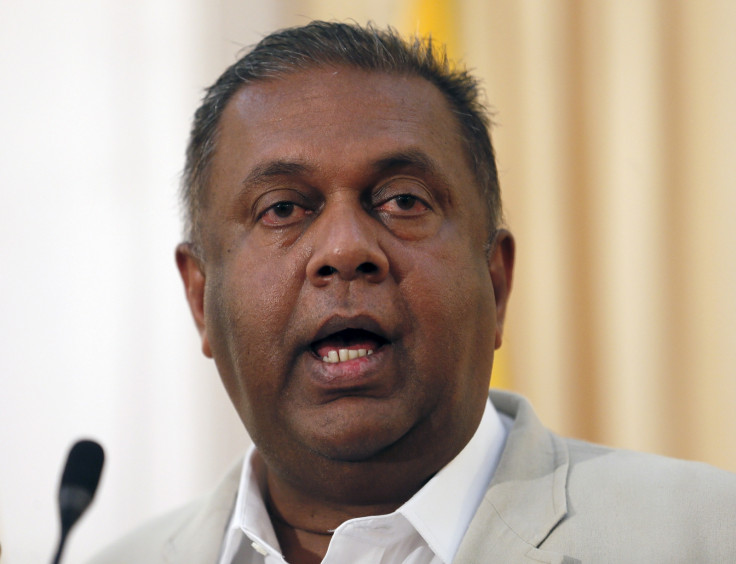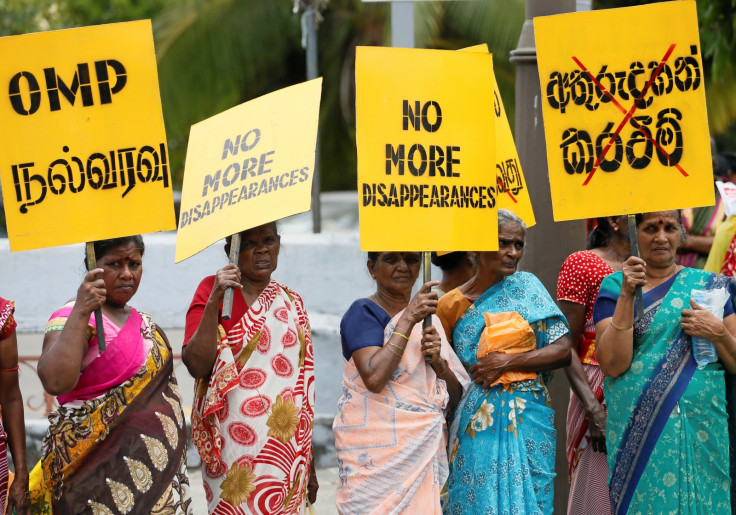'There is reason to hope' says Sri Lanka's foreign minister on reconciliation hopes after civil war
Mangala Samaraweera says there is a 'window of opportunity' to build on peace.

The government in Sri Lanka is committed to investigating those accused of carrying out atrocities during its civil war "according to the law" as the country stands on the brink of a "once in a lifetime opportunity" to heal the divisions of the past, its foreign minister has said.
Addressing the London-based think tank, Chatham House, Mangala Samaraweera, said the Indian Ocean island, once riven by a 26-year conflict ending in 2009 between separatist Tamil Tiger rebels and government forces, was now a "new Sri Lanka, united by its diversity".
Successive governments have not addressed war crimes, despite reports of enforced disappearances, torture and extrajudicial executions from both government forces and the Liberation Tigers of Tamil Eelam (LTTE).
But Samaraweera said a truth and justice commission could deal with what he described as "an iceberg of cases" which numbered in the "hundreds, if not thousands".
He added that for the first time, since independence from the United Kingdom 69 years ago, all parties have agreed to work together "to address the causes of conflict" and that "we have learnt from the mistakes of the past."
"We are confronting these problems on a daily basis and we know the reconciliation process has not achieved all we wanted {...} one of the mechanisms set up will ensure that all those with such serious allegations against them will be dealt with according to the law," he said on 11 January.
An office for missing persons to be set up in the next two months and changes to the constitution, limiting presidential terms and establishing a constitutional council as well as the return of thousands of hectares of miltary-held land, showed a move from authoritarianism to a rights-based democracy, he said.
"There is reason to hope [...] what we have to gain in Sri Lanka is a unique window of opportunity [...} it is not the opportunity of the decade, but certainly is the opportunity of our lifetime," the foreign minister told Chatham House.
Human Rights Watch (HRW) has called on the Sri Lankan government to implement the recommendations of the UN-mandated Consultation Task Force (CTF), which in 2016 surveyed the aspirations of thousands of Sri Lankan citizens drawn from Sinhalese, Tamil, Muslim and other communities.

The CTF stated the need for a war crimes court that had both local and foreign judges and officials with no time limit on jurisdiction.
But foreign judges have been opposed by the country's justice and health ministers, as well as the president, Maithripala Sirisena, who said earlier in January that the government did not want to target "war heroes".
HRW Asia director, Brad Adams, said: "Now that the task force has listened to the country, it's crucial that the government doesn't drop its key recommendations. The government should recognise that its commitments were not only to concerned governments in Geneva, but to its own citizens seeking justice and reconciliation after a terrible war."
Richard Gowing, campaign director of the Sri Lanka Campaign for Peace and Justice, said international judges were essential and that foreign minister Samaraweera appeared to back the government view that only domestic officials could preside over the reconciliation process, which was a departure from the United Nations Human Rights Council's resolution of 2015.
"It is a serious concern in the international community that an even more progressive foreign minister has now rowed back on his previous endorsement of an internationalised process.
"It is a bit of an oxymoron to talk of a credible domestic justice mechanism for these very sensitive and serious crimes. The international community and the government itself previously, and a wide section of civil society affected by the civil war, recognised and fully support the need for an international element to ensure that those procedures are credible," he told IBTimes UK.
© Copyright IBTimes 2025. All rights reserved.






















